In a significant stride toward promoting sustainable agriculture and reducing dependency on imported agrochemicals, the FAREI officially launched a training course on seaweed composting during a ceremony held on 31 July 2025 at FAREI Belle Mare Research Station.
This initiative forms part of the Government’s broader strategy to encourage the use of locally sourced organic inputs in agriculture. By transforming organic solid waste and drifted seaweed into nutrient-rich compost, Mauritius aims to boost soil fertility, support food security, and reduce its reliance on chemical fertilisers. This environmentally friendly approach not only promotes sustainable farming but also contributes to climate-resilient agricultural practices.
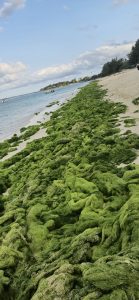
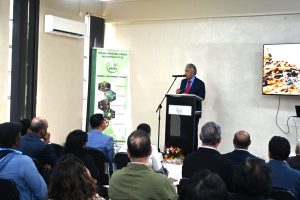
In his keynote address, the Honourable Dr Arvin Boolell, Minister of Agro-Industry, Food Security, Blue Economy and Fisheries, highlighted the importance of recycling organic matter and underscored the need for Mauritius to produce its own agricultural inputs. He emphasised that this initiative holds potential not only for ecological benefits but also as a business opportunity for local entrepreneurs and communities.
Honourable Fabrice David, Junior Minister of Agro-Industry, Food Security, Blue Economy and Fisheries, also expressed his appreciation for its initiative which goes towards a circular economy through scientific and technical research. He commended the contributions of FAREI in empowering the planter community and promoting innovation in agricultural practices.
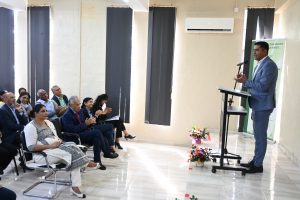
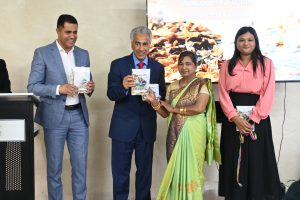
On this occasion, a booklet on “A guide to seaweed compost making” was officially launched. With its abundant coastal resources and local expertise, Mauritius is well positioned to develop and implement seaweed composting technologies. The implementation of such an endeavor relies on the strong collaboration among government agencies, researchers, farmers, coastal communities, and private stakeholders.
In addition to leading composting research and outreach, FAREI is actively involved in a technical committee under the Ministry of Environment, Solid Waste Management and Climate Change. This committee is currently addressing the pressing issue of algal blooms along the coastal areas. Composting drifted seaweed has been identified as a viable solution for mitigating these blooms while recovering valuable resources.
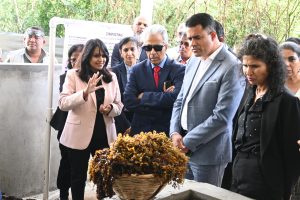
The environmental and agricultural benefits of seaweed composting are manifold. It presents a sustainable response to multiple challenges—from improving soil health and increasing food production to managing coastal waste and promoting ecological balance. By converting drifted seaweed into a useful organic input, this initiative aligns with Mauritius’ national priorities of reducing dependency on imported agrochemicals and fostering climate-smart agriculture.
The conversion of seaweeds into compost marks a pivotal moment in the journey towards sustainable and farming in Mauritius. It is a testament to the country’s commitment to innovative, eco-friendly solutions that strengthen its agricultural sector while making good use of its natural resources.